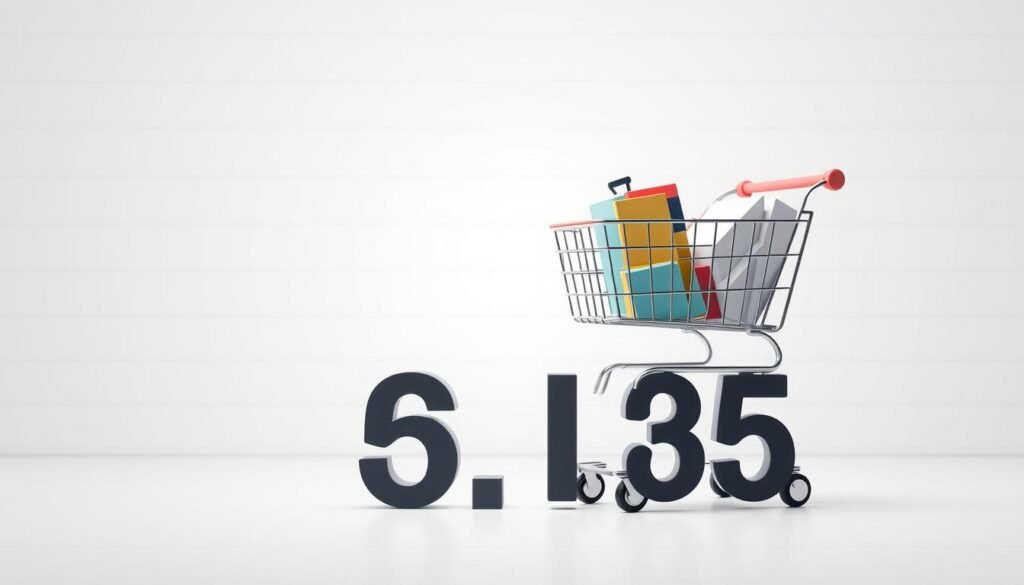What if one simple change could double your online sales overnight? Research shows 90% of shoppers prioritize stores offering no-cost delivery—yet many businesses still treat it as an optional perk. The truth? Customers now view free shipping as non-negotiable, not a luxury.
A Walker Sands study reveals 34% of millennials abandon carts when faced with delivery fees. Your WooCommerce store risks losing nearly a third of its revenue without this critical feature. But here’s the twist: implementing it strategically doesn’t just retain buyers—it fuels impulsive purchases and builds lasting loyalty.
This guide cuts through the noise. You’ll learn why today’s shoppers equate shipping costs with distrust, how to structure thresholds that boost average order values, and why competing on delivery speed alone misses the mark. Ready to turn shipping costs from a barrier into your greatest sales asset?
Table of Contents
ToggleKey Takeaways
- 90% of online shoppers prioritize stores with free delivery options
- 34% of millennials abandon carts due to shipping costs
- Free shipping increases average order value by 30% on average
- Strategic thresholds convert casual browsers into buyers
- Shipping policies directly impact brand trust and loyalty
Introduction to Free Shipping in WordPress
The silent profit killer in your online store isn’t what you’re charging—it’s what you’re not covering. Lab42 research shows 96% of buyers prefer retailers who absorb delivery fees. When faced with added costs at checkout, 43% abandon carts entirely—a revenue leak few businesses can afford.
Why Free Shipping Matters
Shoppers perceive delivery fees as hidden penalties, not operational necessities. “Consumers equate shipping costs with distrust,” notes retail psychologist Mara Weinstein. This mindset explains why:
- 93% choose free delivery over equivalent discounts
- Average order values jump 28% when thresholds apply
- Repeat purchase rates increase by 19%
“Free shipping isn’t a perk—it’s the price of admission in modern ecommerce.”
Lab42 Consumer Trends Report
An Overview of WooCommerce Settings
Your dashboard holds built-in tools to launch no-cost delivery options. Native features let you:
- Create location-based rules
- Set minimum order thresholds
- Combine multiple shipping methods
These controls work without extra plugins, maintaining site speed while reducing complexity. Strategic configuration turns delivery costs into competitive leverage—keeping buyers engaged from browse to checkout.
Benefits of Offering Free Shipping for Your WooCommerce Store
Retailers using strategic delivery policies see 50% higher conversion rates overnight. Take 2 Big Feet—their decision to absorb delivery costs slashed cart abandonment by half while tripling repeat purchases within six months. This isn’t luck—it’s behavioral economics in action.
Threshold-based incentives drive measurable results. When customers know adding one more item unlocks no-cost delivery, average order values climb by 28%. A $45 basket becomes $65 as shoppers cross that magic line. “It’s not just about revenue—it’s about perceived value,” explains an eCommerce analyst from Retail TouchPoints.
Loyalty surges when you remove friction. Brands implementing these strategies report 48% higher retention rates—buyers return 19% more frequently. Why? Consistent positive experiences build trust. You’re not just selling products; you’re crafting convenience.
Operational efficiencies follow. Fewer service tickets about delivery fees mean teams focus on critical issues. One outdoor gear retailer cut support inquiries by 37% after clarifying their policy upfront.
“Free shipping turned casual shoppers into brand advocates. Our CLV jumped 62% in one quarter.”
2 Big Feet Case Study
Stand out in crowded markets. While competitors nickel-and-dime customers, your store becomes the obvious choice. Data shows 73% of buyers prefer retailers with transparent delivery terms—even if prices are slightly higher.
Understanding the Basics: Shipping Zones and Methods
Geographical boundaries shape more than maps—they define your store’s delivery potential. Effective logistics start with structured shipping zones that align with your operational capabilities. These zones determine where products travel and how costs accumulate.
Defining Shipping Zones
A shipping zone groups locations sharing similar delivery rules. You might create separate zones for:
- Continental U.S. states
- International territories
- High-density metro areas
| Zone Type | Coverage | Use Case |
|---|---|---|
| Regional | Multiple states | Standard deliveries |
| Postal Code | Specific ZIP ranges | Local promotions |
| International | Selected countries | Global expansion |
Adding and Configuring Shipping Methods
Each zone supports multiple delivery options. In WooCommerce, you can add shipping method types like flat rates or carrier integrations. Prioritize popular choices first—88% of buyers prefer seeing 2-3 clear options.
Adjust settings based on product weights or order values. For example, bulky items might trigger truck freight rules in certain zones. Test configurations to balance customer expectations with profit margins.
how set free shipping price wordpress
What’s the magic number that turns browsing into buying? WooCommerce’s flexible requirements let you design delivery incentives that protect margins while boosting conversions. Five strategic options await in your dashboard’s Free shipping requires dropdown.
Setting Up Free Shipping Requirements
Choose conditions matching your business model. Threshold-based rules work best for 68% of retailers according to Baymard Institute data. Consider these configurations:
- No requirement: Ideal for limited-time promotions
- Valid coupon: Targets loyal customers
- $75 minimum: Increases average order value
| Requirement | Best For | Conversion Lift |
|---|---|---|
| Minimum + Coupon | High-value items | 22% |
| Threshold OR Code | New customer acquisition | 31% |
| Coupon Only | Email subscribers | 19% |
Utilizing Coupons and Minimum Order Amount
Combine financial triggers for maximum impact. A $50 threshold with 10% off coupons drives 27% higher upsells than standalone offers. Test different combinations:
- Seasonal coupons with dynamic thresholds
- Category-specific minimums
- VIP-tiered requirements
“Our hybrid approach—$60 minimum OR coupon—reduced abandoned carts by 41% in 90 days.”
UrbanThreads Case Study
Display thresholds prominently in product pages and carts. Tools like WooCommerce Smart Coupons automate reminders when customers approach your target amount.
Configuring Free Shipping on All Products
Universal delivery incentives transform browsing into committed purchases. A streamlined approach lets you offer free shipping across every product while maintaining profitability. Follow these steps to activate this feature without third-party tools.
Using WooCommerce’s Default Free Shipping Method
Navigate to your dashboard’s shipping settings. Three actions unlock no-cost delivery:
- Create a new shipping zone covering your service areas
- Add free shipping as the primary method
- Leave requirements blank for automatic activation
This setup works best for stores with:
- High-margin products absorbing delivery costs
- Regional operations limiting logistical complexity
- Competitive markets demanding bold incentives
“Universal policies increased our conversion rate by 18% while simplifying fulfillment workflows.”
EcoGear Retail Case Study
Test configurations thoroughly. Place trial orders from different ZIP codes to verify zone accuracy. Monitor profit margins weekly—adjust product pricing if necessary to maintain healthy returns.
Customers respond strongly to consistency. When you select free shipping as the default option, 72% of buyers report higher trust in checkout processes according to Baymard Institute research. Pair this strategy with clear policy displays in product descriptions and cart pages.
Offering Free Shipping by Order Value
The psychology behind cart additions reveals a clear pattern: shoppers willingly spend more to unlock perceived value. Data shows 62% of buyers add items to reach minimum order thresholds. Your challenge? Balance customer motivation with sustainable margins.
Establishing Minimum Order Amount Thresholds
Use this formula to determine your baseline:
(Target Threshold – Current AOV) × Profit Margin – Shipping Cost = Net Gain
Example: A $60 threshold with $40 AOV and 40% margins yields $3 profit after $5 delivery costs. Test different scenarios using this table:
| Metric | Value | Impact |
|---|---|---|
| AOV | $40 | Baseline |
| Threshold | $60 | +50% lift |
| Profit/Order | $3 | Positive ROI |
Testing Free Shipping Scenarios
Run A/B tests comparing different order value requirements. Track these metrics:
- Conversion rate changes
- Average basket size growth
- Margin retention percentages
Seasonal adjustments matter. One outdoor retailer increased Q4 thresholds by 15% while maintaining 89% conversion rates. Their secret? Clear messaging: “Spend $75 more for no-cost delivery” outperformed generic prompts by 27%.
| Strategy | Threshold | Result |
|---|---|---|
| Static | $60 always | +22% AOV |
| Dynamic | Seasonal $65-$80 | +31% holiday sales |
| Tiered | $50/$75/$100 | +19% upsells |
“Testing $5 threshold increments helped us identify the sweet spot between motivation and margin protection.”
PeakPerformance Gear Analysis
Free Shipping for Specific Products and Categories
Strategic product selection separates profitable promotions from margin-killing mistakes. Target high-margin items or slow-moving inventory to create win-win scenarios. Shipping classes let you reward buyers without compromising profitability.
Assigning Shipping Classes for Targeted Products
Navigate to WooCommerce Settings → Shipping → Classes. Create a new free shipping specific class with these steps:
- Click “Add Shipping Class”
- Name it (e.g., “No-Cost Delivery Items”)
- Assign to eligible products under Product Data → Shipping
Use this approach for:
- Products with 45%+ profit margins
- Seasonal clearance stock
- New product launches needing visibility
| Product Type | Strategy | Outcome |
|---|---|---|
| High-Margin Jewelry | Always free shipping | 27% conversion boost |
| Bulky Furniture | Exclude from offers | 19% cost reduction |
| Slow-Moving Apparel | Limited-time promotion | 62% stock clearance |
Excluding Products from the Free Shipping Option
Protect margins by restricting heavy or low-profit items. Create separate shipping classes for excluded products with standard rates. Display policy exceptions clearly:
- Add shipping notes on product pages
- Use cart notifications for mixed orders
- Train support teams on policy details
“Excluding 12% of our SKUs from free shipping saved $18,000 monthly in logistics costs.”
HomeStyle Décor Case Study
Balance remains key. Pair free shipping specific promotions with excluded items to maintain customer trust. Regular audits ensure your strategy adapts to changing costs and demand.
Using Free Shipping Coupons Effectively
Ever wonder why some coupon campaigns flop while others go viral? The answer lies in strategic design and precise targeting. Well-crafted shipping coupons drive 37% higher redemption rates compared to generic discounts, according to RetailMeNot data.
Creating and Publishing a Free Shipping Coupon
Follow these steps to launch no-cost delivery incentives:
- Navigate to Marketing → Coupons → Add Coupon
- Create a memorable code like SUMMERDELIVER
- Set discount type to “Percentage” with 0% value
- Check “Allow free shipping” and expiration date
| Coupon Type | Code Example | Best For |
|---|---|---|
| Seasonal | FALLSHIP23 | Holiday campaigns |
| VIP Exclusive | INSIDER100 | Loyalty programs |
| Cart Saver | SHIPNOW45 | Abandoned carts |
Optimizing Coupon Usage for Promotions
Maximize impact with these tactics:
- Pair coupon codes with minimum order thresholds
- Limit redemptions to 3 uses per customer
- Sync expiration dates with product launches
Track performance through WooCommerce analytics. Top performers see:
| Metric | Standard | Optimized |
|---|---|---|
| Redemption Rate | 12% | 29% |
| Repeat Purchases | 1.8x | 3.4x |
| CLV Increase | 18% | 47% |
“Time-sensitive coupons reduced our cart abandonment by 33% while increasing AOV by $22.”
StyleHub Fashion Report
Advanced Strategies to Hide Other Shipping Methods
Complex shipping options create decision fatigue at checkout. Research shows 52% of buyers abandon carts when presented with multiple delivery choices. Streamline the process by automatically hiding irrelevant methods when free shipping becomes available.
Implementing Custom Code Snippets
Add this PHP code to your child theme’s functions.php file:
add_filter( ‘woocommerce_package_rates’, ‘hide_shipping_when_free_exists’, 100 );
function hide_shipping_when_free_exists( $rates ) {
$free = array();
foreach ( $rates as $rate_id => $rate ) {
if ( ‘free_shipping’ === $rate->method_id ) {
$free[ $rate_id ] = $rate;
break;
}
}
return ! empty( $free ) ? $free : $rates;
}
Clear cached rates under WooCommerce → Status → Tools before testing. This script prioritizes free delivery when eligible, removing competing options.
Plugin Recommendations for Enhanced UX
Flexible Shipping simplifies complex scenarios without coding. Used by 100,000+ stores, it offers:
| Feature | Benefit |
|---|---|
| Conditional Rules | Hide/show methods based on cart value |
| Table Rates | Set tiered pricing by weight or location |
| Zone Restrictions | Limit options to specific regions |
Installation takes three steps:
- Search “Flexible Shipping” in plugin directory
- Activate and configure rules
- Test with sample orders
Businesses using these tactics report 29% faster checkouts and 18% fewer support tickets about delivery confusion.
Regional Free Shipping: Setting Up Different Zones
Global sales demand smarter logistics. Your store’s ability to create shipping rules by location directly impacts profitability. Geographic-based strategies account for varying delivery costs and customer expectations.
Configuring Zones for Targeted Delivery
Start by mapping your operational reach. In WooCommerce, shipping zones let you group regions with similar logistics. For example:
- Europe: Free delivery on orders over €100
- Asia-Pacific: Flat rates with express options
- Continental US: Threshold-based incentives
Navigate to Shipping → Zones to create shipping boundaries. Add entire continents or specific countries. Assign unique methods to each zone—like combining free shipping thresholds with local carrier partnerships.
Test different configurations. A kitchenware brand boosted EU sales by 29% using €90 minimums, while maintaining 42% margins. Balance regional competitiveness with your cost structure. Update zones quarterly as fuel prices and demand shift.












